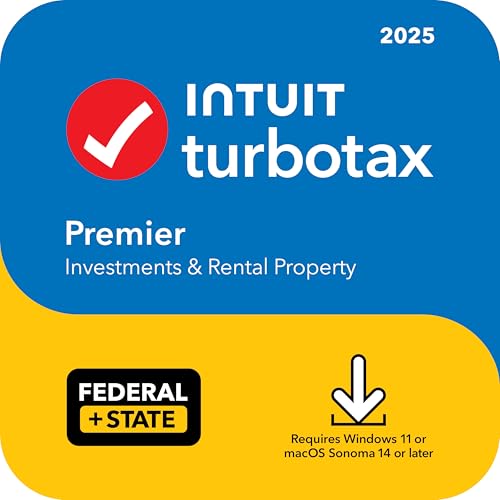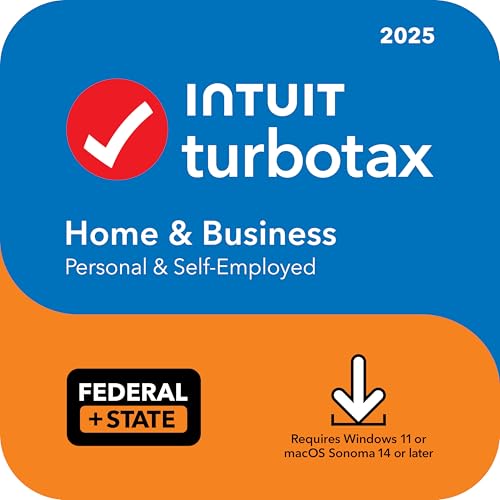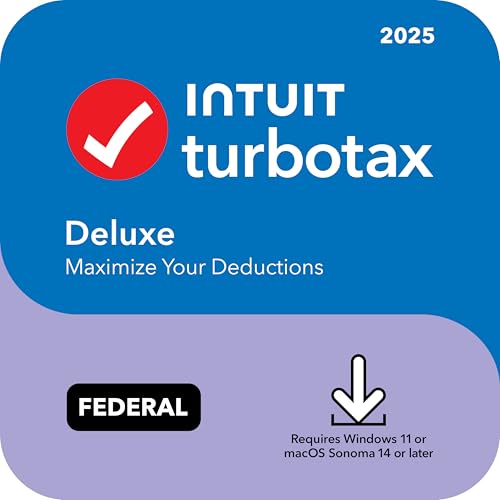المحتوى المقدم من Bloomberg. يتم تحميل جميع محتويات البودكاست بما في ذلك الحلقات والرسومات وأوصاف البودكاست وتقديمها مباشرة بواسطة Bloomberg أو شريك منصة البودكاست الخاص بهم. إذا كنت تعتقد أن شخصًا ما يستخدم عملك المحمي بحقوق الطبع والنشر دون إذنك، فيمكنك اتباع العملية الموضحة هنا https://ar.player.fm/legal.
Player FM - تطبيق بودكاست
انتقل إلى وضع عدم الاتصال باستخدام تطبيق Player FM !
انتقل إلى وضع عدم الاتصال باستخدام تطبيق Player FM !
Odd Lots
وسم كل الحلقات كغير/(كـ)مشغلة
Manage series 1504378
المحتوى المقدم من Bloomberg. يتم تحميل جميع محتويات البودكاست بما في ذلك الحلقات والرسومات وأوصاف البودكاست وتقديمها مباشرة بواسطة Bloomberg أو شريك منصة البودكاست الخاص بهم. إذا كنت تعتقد أن شخصًا ما يستخدم عملك المحمي بحقوق الطبع والنشر دون إذنك، فيمكنك اتباع العملية الموضحة هنا https://ar.player.fm/legal.
Bloomberg's Joe Weisenthal and Tracy Alloway explore the most interesting topics in finance, markets and economics. Join the conversation every Monday and Thursday.
1112 حلقات
وسم كل الحلقات كغير/(كـ)مشغلة
Manage series 1504378
المحتوى المقدم من Bloomberg. يتم تحميل جميع محتويات البودكاست بما في ذلك الحلقات والرسومات وأوصاف البودكاست وتقديمها مباشرة بواسطة Bloomberg أو شريك منصة البودكاست الخاص بهم. إذا كنت تعتقد أن شخصًا ما يستخدم عملك المحمي بحقوق الطبع والنشر دون إذنك، فيمكنك اتباع العملية الموضحة هنا https://ar.player.fm/legal.
Bloomberg's Joe Weisenthal and Tracy Alloway explore the most interesting topics in finance, markets and economics. Join the conversation every Monday and Thursday.
1112 حلقات
All episodes
×1 This Is Why Credit Card Interest Rates Are So High 44:42
44:42  التشغيل لاحقا
التشغيل لاحقا  التشغيل لاحقا
التشغيل لاحقا  قوائم
قوائم  إعجاب
إعجاب  احب44:42
احب44:42
Some people pay off their credit cards at the end of each month. They use the cards as a payment method and collect points and rewards, and never have to pay any interest. For other users, interest can be sky high — way higher than what would be expected simply based on a user's credit or default risk. Why is this? And how do credit card companies get away with charging interest at these levels? On this episode, we speak with Itamar Drechsler, a finance professor at Wharton, who recently co-authored a piece titled Why Are Credit Card Rates so High ? Drechsler walks us through the costs of running a credit card operation and explains what borrowers are really paying for. Read more: US Consumer Confidence Falls by Most Since April on Economy Gambling, Prediction Markets Create New Credit Risks, BofA Warns Only http://Bloomberg.com subscribers can get the Odd Lots newsletter in their inbox each week, plus unlimited access to the site and app. Subscribe at bloomberg.com/subscriptions/oddlots See omnystudio.com/listener for privacy information.…
1 Graham Allison on the Risks of a US-China War 49:10
49:10  التشغيل لاحقا
التشغيل لاحقا  التشغيل لاحقا
التشغيل لاحقا  قوائم
قوائم  إعجاب
إعجاب  احب49:10
احب49:10
The US and China are in a "Thucydides Trap," whereby the risk of war is heightened when an established power is threatened by a rapidly rising power. This is the framework that's been popularized by Graham Allison, the Douglas Dillon Professor of Government at Harvard University. Professor Allison has been writing about China and the US-China relationship for decades. He's been focused on the growing odds of a violent conflict between the two powers. On this episode, he explains his work and the conditions that drive greater risk of armed conflict. He also tells us what both sides get wrong about each other, and what it will take to reduce the odds of military involvement. More: Henry Wang on China's Role in the New Emerging World Order Subscribe to the Odd Lots Newsletter Join the conversation: discord.gg/oddlots See omnystudio.com/listener for privacy information.…
1 Ray Dalio on the Five Forces That Make This a Historical Moment 58:06
58:06  التشغيل لاحقا
التشغيل لاحقا  التشغيل لاحقا
التشغيل لاحقا  قوائم
قوائم  إعجاب
إعجاب  احب58:06
احب58:06
You're not imagining it. This really is a moment of tremendous historical change. Various forces are all aligned right now and reshaping how the world operates. That's the view of Ray Dalio, the founder of Bridgewater Capital, the world's biggest hedge fund. While Odd Lots has been around for 10 years, Dalio ran Bridgewater for an extraordinary five decades, so he's the perfect person to get a big picture understanding of what's going on. He talks about how a mix of rising wealth inequality, the AI boom, a burgeoning national debt, and more, are changing the world. We also talk about lessons he learned from running Bridgewater, the importance of meditation, as well as his long-term skepticism about the pod shop hedge fund model. Subscribe to the Odd Lots Newsletter Join the conversation: discord.gg/oddlots Only Bloomberg.com subscribers can get the Odd Lots newsletter in their inbox — now delivered every weekday — plus unlimited access to the site and app. bloomberg.com/subscriptions/oddlots See omnystudio.com/listener for privacy information.…
Here’s a preview of another podcast we enjoy, Risky Business with Nate Silver and Maria Konnikova. Risky Business is a weekly podcast about making better decisions. Hosted by journalist and psychologist Maria Konnikova and data analyst and election forecaster Nate Silver, who both happen to be accomplished high-stakes poker players, the show explores how we navigate uncertainty in politics, poker, and everyday life. From unpacking AI hype to diving deep into election forecasting to discussing trust on reality TV, they break down the odds behind the headlines. Because every choice is a bet. New episodes drop on Wednesdays and Fridays —listen to Risky Business wherever you get podcasts. See omnystudio.com/listener for privacy information.…
1 Why America's Cattle Ranchers Keep Getting Squeezed 43:20
43:20  التشغيل لاحقا
التشغيل لاحقا  التشغيل لاحقا
التشغيل لاحقا  قوائم
قوائم  إعجاب
إعجاب  احب43:20
احب43:20
The country's cattle herd has shrunk to its smallest size in decades and beef prices have been soaring this year, with hamburgers and steaks becoming the latest flashpoints in the political debate over higher food prices. In this episode, we untangle the roots of declining domestic beef supply — from drought and surging feed costs to the lasting impact of consolidation in the meatpacking industry. We speak with Bill Bullard, CEO of R-CALF USA, a trade association for independent cattle ranchers, about the forces shrinking America's cattle industry and what can be done about it. (Editor's Note: This episode was recorded Oct. 30) Subscribe to the Odd Lots Newsletter Join the conversation: discord.gg/oddlots Only Bloomberg.com subscribers can get the Odd Lots newsletter in their inbox — now delivered every weekday — plus unlimited access to the site and app. bloomberg.com/subscriptions/oddlots See omnystudio.com/listener for privacy information.…
1 What Susan Collins Wants to See Before Supporting Another Rate Cut 47:52
47:52  التشغيل لاحقا
التشغيل لاحقا  التشغيل لاحقا
التشغيل لاحقا  قوائم
قوائم  إعجاب
إعجاب  احب47:52
احب47:52
In early November, it looked like almost a sure thing that the Federal Reserve would cut rates. Since then, the odds have come in dramatically, as a number of FOMC members have been talking about persistent inflationary pressures. One such voice has been Susan Collins, the president of the Boston Fed. On this episode, she explains her thinking as to why, right now, she's more concerned about inflation than she is about the labor market, and she tells us what she'd like to see before supporting another rate cut. Today's episode coincides with the first day of the Boston Fed's annual economic research conference, which will be streaming live on the bank's website . Subscribe to the Odd Lots Newsletter Join the conversation: discord.gg/oddlots See omnystudio.com/listener for privacy information.…
1 Tyler Cowen on Why AI Hasn't Changed the World Yet 51:38
51:38  التشغيل لاحقا
التشغيل لاحقا  التشغيل لاحقا
التشغيل لاحقا  قوائم
قوائم  إعجاب
إعجاب  احب51:38
احب51:38
In many respects, AI technology is already mind-blowing, and can perform many tasks far better than the average person. And yet by and large, its impact has been hard to detect. We haven't seen some huge labor displacement, for example. There's nothing dramatic yet happening in the productivity data. So when will the impact really start to be felt? On this episode, we speak with Tyler Cowen, a professor at George Mason University and the co-author of the famed econ blog Marginal Revolution. He's also the host of the Conversations with Tyler podcast. We talk about when we'll really start feeling AIs impact, as well as other topics, like food, music, and the general state of discourse. Subscribe to the Odd Lots Newsletter Join the conversation: discord.gg/oddlots See omnystudio.com/listener for privacy information.…
1 The Politics of AI Are About to Explode 45:14
45:14  التشغيل لاحقا
التشغيل لاحقا  التشغيل لاحقا
التشغيل لاحقا  قوائم
قوائم  إعجاب
إعجاب  احب45:14
احب45:14
AI wasn't much of a topic in the 2024 election. But it will almost certainly be big in 2028, and probably even the 2026 midterms. There are concerns about all the money being spent and whether a federal backstop or bailout will be necessary one day. There are the concerns about energy use and electricity prices. There are concerns about labor displacement. And there are concerns about whether we can trust AI outputs. Already we see numerous politicians lining up against AI in one way or another. On this episode, we speak with Saagar Enjeti, the co-host of the Breaking Points podcast to discuss how this issue is already blowing up, and how the tech industry may soon find itself friendless in DC. Subscribe to the Odd Lots Newsletter Join the conversation: discord.gg/oddlots See omnystudio.com/listener for privacy information.…
1 Jeffrey Gundlach Says Almost All Financial Assets Are Now Overvalued 59:18
59:18  التشغيل لاحقا
التشغيل لاحقا  التشغيل لاحقا
التشغيل لاحقا  قوائم
قوائم  إعجاب
إعجاب  احب59:18
احب59:18
Stocks are overpriced. Bonds are overpriced. And private assets are a powder keg. This is the view of Jeffrey Gundlach, the founder and CEO of DoubleLine Capital. As part of our 10-year anniversary celebration of the Odd Lots podcast, we've been talking to some big names in markets and economics to get a sense of how they see the world and what's changed in recent years. One major change, obviously, is the end of ZIRP. And while Treasuries have rallied modestly this year, Gundlach sees mounting pressure on government balance sheets pushing yields higher going into the future. We also talk about gold, the greater opportunities for a US-based investor when looking internationally, and why everyone should be holding more cash in their portfolios. Subscribe to the Odd Lots Newsletter Join the conversation: discord.gg/oddlots See omnystudio.com/listener for privacy information.…
1 Citi's Dirk Willer on How You Know When the Bubble Is Over 39:52
39:52  التشغيل لاحقا
التشغيل لاحقا  التشغيل لاحقا
التشغيل لاحقا  قوائم
قوائم  إعجاب
إعجاب  احب39:52
احب39:52
According to Dirk Willer, the Global Head of Macro Strategy at Citigroup, we are definitely in bubble territory. Per his research, the stock market has been in a bubble since May. Unlike many people, whose definitions of bubbles are a bit more vague or a bit more based on sentiment, Dirk's work focuses on precise timing and price indicators that distinguish bubbles from mere booms. Furthermore, he argues that when the bubble first forms, the correct move historically is to buy into it and then just accept that you'll never nail the top perfectly. On this episode, we talk about his overall approach as well as the signs of when the bubble has come to an end. We also talk about current parallels to the dotcom bubble, why gold has had such a monster year, and the signs from the Treasury market that make the US look increasingly like an emerging market. Read more: Stock Bounce Wanes on Fed Angst as Bitcoin Plunges: Markets Wrap Gold ‘Trading Like a Meme Stock’ Sets Up Miners as Levered Bet Only Bloomberg - Business News, Stock Markets, Finance, Breaking & World News subscribers can get the Odd Lots newsletter in their inbox each week, plus unlimited access to the site and app. Subscribe at bloomberg.com/subscriptions/oddlots Join the conversation: discord.gg/oddlots See omnystudio.com/listener for privacy information.…
1 Why Paul Kedrosky Says AI Is Like Every Bubble All Rolled Into One 47:29
47:29  التشغيل لاحقا
التشغيل لاحقا  التشغيل لاحقا
التشغيل لاحقا  قوائم
قوائم  إعجاب
إعجاب  احب47:29
احب47:29
In recent weeks, there's been renewed anxiety about the sustainability of the AI boom. This is partly due to comments from OpenAI CFO Sarah Friar about a possible role for a government backstop in the AI infrastructure build out. We've also seen the stock market wobble, with many major tech names hit hard. But even with all these concerns, we continue to see new announcements all the time. Just this week, Anthropic said it would spend $50 billion on data center development in the US. So are we actually in a bubble? Our guest on this episode believes we are -- and not just any bubble. According to Paul Kedrosky, a longtime VC currently at SK Ventures, the AI bubble is like every previous bubble rolled into one. There's the real estate element. There's the tech element. And, increasingly, there are exotic financing structures being put in place to fund it all. And then on top of that, there's talk of government bailouts and backstops. In this episode, we walk through some of the math that would be required to justify all this spending, and how the seemingly existential stakes of 'winning the AI race' is causing an unsustainable investment binge. Read more: AI Startup Cursor Raises Funds at $29.3 Billion Valuation Point72’s Drossos Sees AI Boom Driving Gains in Asian Currencies Only Bloomberg - Business News, Stock Markets, Finance, Breaking & World News subscribers can get the Odd Lots newsletter in their inbox each week, plus unlimited access to the site and app. Subscribe at bloomberg.com/subscriptions/oddlots Join the conversation: discord.gg/oddlots See omnystudio.com/listener for privacy information.…
1 Cliff Asness on How Markets Got Dumber in the Last 10 Years 57:17
57:17  التشغيل لاحقا
التشغيل لاحقا  التشغيل لاحقا
التشغيل لاحقا  قوائم
قوائم  إعجاب
إعجاب  احب57:17
احب57:17
The Odd Lots podcast has been around for 10 years. Unfortunately, markets have gotten less rational over the same time frame. At least this is the contention of Cliff Asness, the co-founder and CEO of AQR Capital Management, a quantitative investing firm that's been around for nearly three decades. Asness' approach to investing is rooted in academic theory, having studied under the legendary Eugene Fama at the University of Chicago. In the world of social media and meme stocks, it's tough out there for the academically minded. And that's forced Cliff to adjust his approach over time. On this episode, we talk about the history of quantitative investing, market efficiency, and the emergence of AI/ML in his process. We also talk about the reality of investing other people's money, and the challenge of sticking with one's convictions at a time when temporary forces are working against you. See omnystudio.com/listener for privacy information.…
1 Jerry Neumann on the Problem With Investing in AI Right Now 48:28
48:28  التشغيل لاحقا
التشغيل لاحقا  التشغيل لاحقا
التشغيل لاحقا  قوائم
قوائم  إعجاب
إعجاب  احب48:28
احب48:28
AI has made a lot of people fabulously wealthy. But sorry, it's probably not going to be the thing that makes you rich. And if history is any guide, we don't even know who the real AI winners are going to be. That's the thesis from longtime Venture Capitalist (now retired) Jerry Neumann. Earlier this year, Neumann published an article, "AI Will Not Make You Rich," putting the AI boom in the context of previous technological revolutions, such as the shipping container. He points out that a lot of the companies that were early to shipping containers didn't make much money, and that the real winners were the new businesses that emerged later and took advantage of the shipping container to build new business models (think about the likes of Walmart or Target). In this conversation, we talk about why it's so hard to invest in technological revolutions, where we are in the cycle, why he's getting out of VC, and when the big opportunities will eventually emerge. Read more: SoftBank Sells Nvidia Stake for $5.8 Billion to Fund AI Bets AI’s $5 Trillion Cost Needs Every Debt Market, JPMorgan Says Only Bloomberg - Business News, Stock Markets, Finance, Breaking & World News subscribers can get the Odd Lots newsletter in their inbox each week, plus unlimited access to the site and app. Subscribe at bloomberg.com/subscriptions/oddlots Join the conversation: discord.gg/oddlots See omnystudio.com/listener for privacy information.…
1 How Chinese Real Estate Became the Biggest Bubble in History 47:01
47:01  التشغيل لاحقا
التشغيل لاحقا  التشغيل لاحقا
التشغيل لاحقا  قوائم
قوائم  إعجاب
إعجاب  احب47:01
احب47:01
Land is a weird asset. We need it to be affordable because everyone needs somewhere to live. But for many people, real estate is also their biggest store of wealth — a kind of national piggybank that fuels both personal fortunes and broader economies. Nowhere is that tension sharper than in China, where housing affordability remains a major challenge even as real estate has been a huge driver of wealth for households and companies alike. China's policymakers have now spent years trying to let the air out of China’s property bubble — without causing it to burst completely. In this episode, we speak with Mike Bird, The Economist ’s Wall Street editor and author of the new book, The Land Trap: A New History of the World’s Oldest Asset . We talk about how much of China's economic progress has been tied up in real estate, different models of land ownership around the world, and why this particular asset is unlike any other. Read more: New World, Vanke Debt Moves Shake Up China’s Property Sector CapitaLand Is Said to Mull Merging Non-China Assets With Mapletree Only http://Bloomberg.com subscribers can get the Odd Lots newsletter in their inbox each week, plus unlimited access to the site and app. Subscribe at bloomberg.com/subscriptions/oddlots Join the conversation: discord.gg/oddlots See omnystudio.com/listener for privacy information.…
1 The Viral Milk That Helped Set Off America's Protein Boom 43:25
43:25  التشغيل لاحقا
التشغيل لاحقا  التشغيل لاحقا
التشغيل لاحقا  قوائم
قوائم  إعجاب
إعجاب  احب43:25
احب43:25
Protein seems to be everywhere these days, with brands from Starbucks to Pepsi jumping on the trend. But the obsession with protein may have started earlier — with a humble dairy product that defied the broader decline in US milk consumption. Fairlife, which uses a specialized filtering process to boost protein and cut sugar and lactose in its milk products, helped spark the modern protein craze that’s unfolded alongside the rise of Ozempic and other GLP-1 drugs. Since Coca-Cola acquired the brand in 2020, Fairlife has become one of the company’s biggest growth drivers. Yet its success also highlights deeper challenges facing the American dairy industry, where per capita milk consumption continues to fall. So how did Fairlife buck the trend? And what does its story reveal about the future of US dairy? On this episode, we speak with Corey Geiger, lead dairy economist at CoBank. Subscribe to the Odd Lots Newsletter Join the conversation: discord.gg/oddlots See omnystudio.com/listener for privacy information.…
مرحبًا بك في مشغل أف ام!
يقوم برنامج مشغل أف أم بمسح الويب للحصول على بودكاست عالية الجودة لتستمتع بها الآن. إنه أفضل تطبيق بودكاست ويعمل على أجهزة اندرويد والأيفون والويب. قم بالتسجيل لمزامنة الاشتراكات عبر الأجهزة.

























